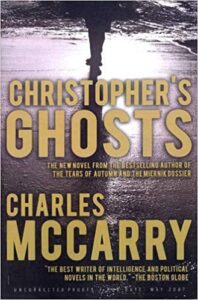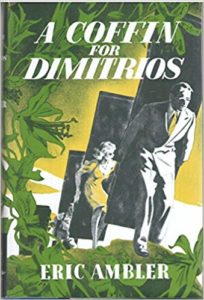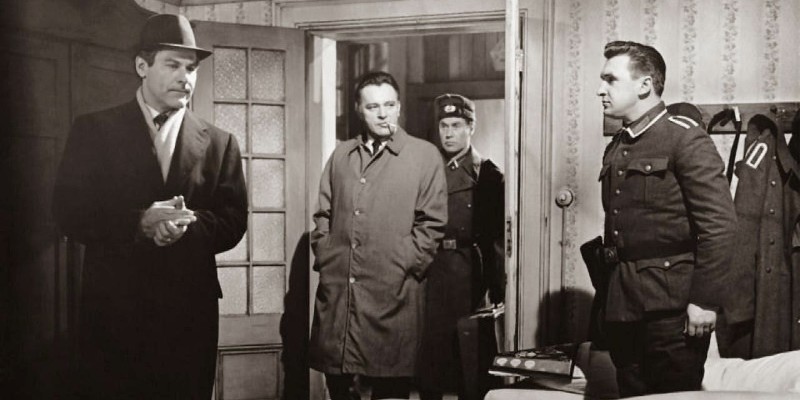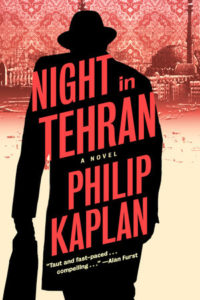My 27-year career as a diplomat in countries around the world, and the U.S. State Department, has quite naturally drawn me to espionage fiction writing. I actively dealt with issues in Europe, Asia and the Mideast, with Latin America and Asia, focusing on national security and arms control issues and negotiated with the then-Soviet Union. I have been tutored through real world experience on how diplomacy and intelligence operatives work. This world is marked by officials of intelligence, courage and others who may be personally flawed, who often face high personal risks and choices marked by moral ambiguity. Fiction affords a superb platform to explore such themes.
Night in Tehran, my debut novel, deals with the fall of the Shah of Iran and the successor regime of ayatollahs which has become our dangerous adversary for over forty years. I monitored these developments in the mid-1970s as a member of the State Department Policy Planning Staff and was struck by the murky choice between the Shah’s government regime and the menace of a fundamentalist Islamist regime. Five years later I was posted as U.S. Minister and later acting ambassador to Manila where I once again encountered the split between a Ferdinand Marcos authoritarian government and the assassinations by a communist guerrilla group, the New People’s Army. In both Iran and the Philippines, we worked with moderate civil society, unsuccessfully in Tehran, with considerable success in Manila.
Fiction is an excellent way to illuminate the challenges, the dangers, the impact of real issues on real people and how diplomacy and intelligence operatives work. The books recommended below are remarkable novels that pose similar choices as to how fictional characters (but in fact real people) confront challenges on missions in foreign countries and the impact these missions could have domestically and even globally.

The Quiet American by Graham Greene
In The Quiet American, Graham Greene’s most famous novel, we see the timeless strategic debate over America’s role in the world told through the eyes of a seasoned but cynical British journalist, Thomas Fowler. Fowler talks about the futility of interference in the affairs of a Vietnam emerging from French colonial rule and the mindless enthusiasm of a young idealistic American who is an undercover CIA agent, Alden Pyle. Pyle is out to convert Vietnam though methods learned from an academic textbook. The Quiet American unpacks the growing American involvement in Vietnam in the 1950s. It is a cautionary tale. At the end the novel, Thomas Fowler says of Alden Pyle, “I never knew a man who had better motives for all the trouble he caused…I won’t be involved.” Not much later comes the French collapse at Dienbienphu. A local out to stop Alden Pyle confronts Fowler, “Sooner or later, one has to take sides – if one is to remain human.”

The Spy Who Came in From the Cold by John le Carré
The Spy Who Came in From the Cold by John le Carré is a classic espionage novel. I was lucky enough to meet John le Carré professionally in Bonn amid the dark days of the Cold War. His novel takes us into Cold War Berlin. The scene is set in a tension-filled measure with a jaded British spy named Alec Leamas who is aching for retirement. Instead of ending his career, Leamas is recruited by the head of UK intelligence for one final mission. It is explained to Leamas that like the East we in the West “do disagreeable things so that ordinary people here and elsewhere can sleep safely in their beds at night.” It’s a thrilling story with a labyrinth of plots that is replete with surprise.

Christopher’s Ghosts, by former CIA officer Charles McCarry
Christopher’s Ghosts, by former CIA officer Charles McCarry, is a two-part novel. Part One is set in a 1939 Berlin. The Christophers are a mixed American and German family being monitored by the Nazis because they are sympathetic to Jews. Paul Christopher is a sixteen-year-old who falls in love with Rima, who has Jewish grandparents. This means that under German law Rima is a Jew. Rima is tormented and killed by an SS Officer named Major Stutzer. Part Two flashes twenty years to the future, in post-war Germany. Paul has joined the CIA. One winter night, in a grey European city, he sees Major Stutzer. The chase commences with Paul following Major Stutzer into East Berlin, which was his childhood neighborhood. It is now controlled by Soviet Russia. Paul is finally faced with his old nemesis and is challenged to rise to the occasion. McCarry shows how ordinary people can become brutal secret policemen, and how dealing with them requires skill, courage, and patient determination.

A Coffin for Dimitrios by Eric Ambler
A Coffin for Dimitrios by Eric Ambler was hailed by the New York Times Book Review as “one of the undisputed masterpieces of the genre.” It is the classic story of an average man named Charles Latimer seemingly out of his depth. A chance encounter leads Latimer, who is a mystery novelist, into a world of political intrigue. Latimer meets a Colonel of the Turkish secret police who professes to be a fan of his novels. The Colonel tells him of the notorious Dimitrios, whose body has been identified in an Istanbul morgue. Latimer decides to track down people who may know what Dimitrios did and uncover the story of his murder. Latimer is cast into a web of espionage, drug smuggling and assassination. The pursuit of mere mystery leads him into an elusive net of moral ambiguity. Latimer is warned that, “The important thing to know about an assassination or an attempted assassination is not who fired the shot, but who paid for the bullet.”

Lies of Silence by Brian Moore
Lies of Silence by Brian Moore focuses on Michael Dillon who is a hotel manager. He is on the verge of telling his fragile wife, Moira, that he is leaving her for a younger woman when he and Moira are taken hostage by the Provisional Irish Republican Army (IRA). He is ordered to drive a car that is imbedded with a bomb into the hotel he manages. The goal is to kill a Protestant minister and maim innocent people who are attending a function at the hotel. If Dillon obstructs the terrorists’ plan, they will kill Moira. If he follows through, he will be responsible for the deaths of innocent people. Dillon’s decision leads to more painful choices, escalating the tension in a narrative that mirrors the troubles in Northern Ireland during the period of ethnic, religious and political conflict from the late 1960s to 1998.
***


















